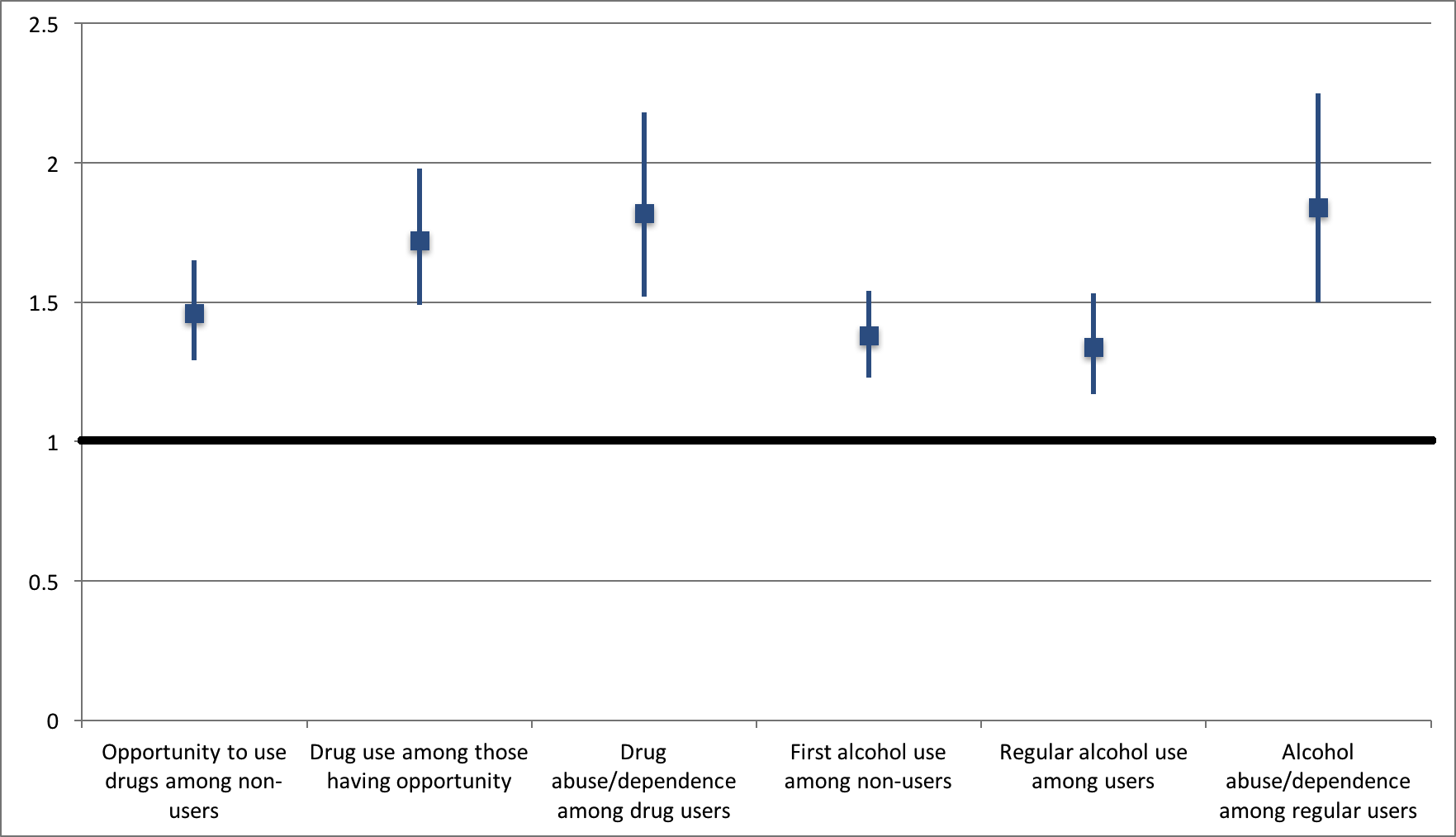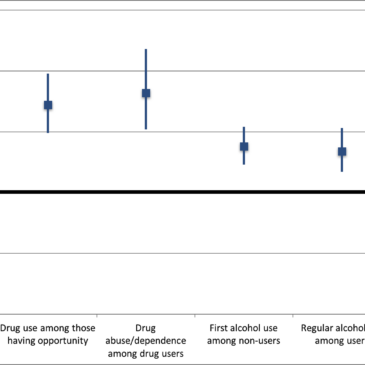For many people, adolescence is a time of transition and experimentation. Because of this, it is important to identify experiences that are associated with adopting new risky behaviors. For at least some adolescents, certain mental health problems, such as depression, increase risk for future alcohol misuse. Do mental health problems, generally, increase risk for adolescent substance use behaviors? This week, STASH reviews a nationally representative study by Dr. Kevin Conway and his colleagues that examines the association between lifetime mental health disorders, and both alcohol and illicit drug use in adolescents.
What was the research question?
Does history of mental health disorders increase the probability of more severe substance use behaviors in adolescents?
What did the researchers do?
A nationally representative survey asked 10,123 adolescents across the United States about their lifetime substance use and mental health history. Conway and colleagues used that data to look at the prevalence and associations between substance use and mental health during three different transitional stages of substance use: initial use (or opportunity to use), regular use, and abuse/dependence. Conway and colleagues calculated odds ratio to quantify how lifetime mental health disorders changed the probability of an adolescent’s transition into more severe substance use categories.
What did they find?
Adolescents with any lifetime history of at least one mental health disorder were at greater risk of transitioning across each stage of substance use (see Figure 1). They were more likely to have an opportunity to use an illicit drug, to use an illicit drug, and to develop drug abuse/dependence symptoms. The researchers found similar patterns when examining predictors of drinking. For example, among regular drinkers, those with any mental health condition had nearly double the risk of progressing to alcohol abuse/dependence. Kids with a lifetime history of depression/dysthymia or oppositional defiant disorder, in particular, had increased risk for moving through all three transitions, for both alcohol and illicit drugs.

Figure. Odds ratios (boxes) and 95% confidence intervals for six substance use outcomes, indicating greater risk for adolescents with any mental health condition relative to their counterparts. Model is adjusted for age, gender, and race/ethnicity. Adapted from Conway et al. (2016). Click image to enlarge.
Why do these findings matter?
All substance use has a beginning. We already knew that mental health and substance use often overlap. But now we know with more confidence that kids who have mental health conditions are at risk for transitioning to using and misusing a variety of substances.
Every study has limitations. What were the limitations in this study?
The current study used cross-sectional design; therefore, the researchers cannot conclude that lifetime mental health disorders caused substance use. This study also relies on self-report and the participant’s ability to retrospectively know when their problems with mental health began.
For more information:
If you or a loved one has a problem with substance use, please visit our addiction resources here.
For more information about adolescent substance use, please click here.
— Alec Conte
What do you think? Please use the comment link below to provide feedback on this article.




